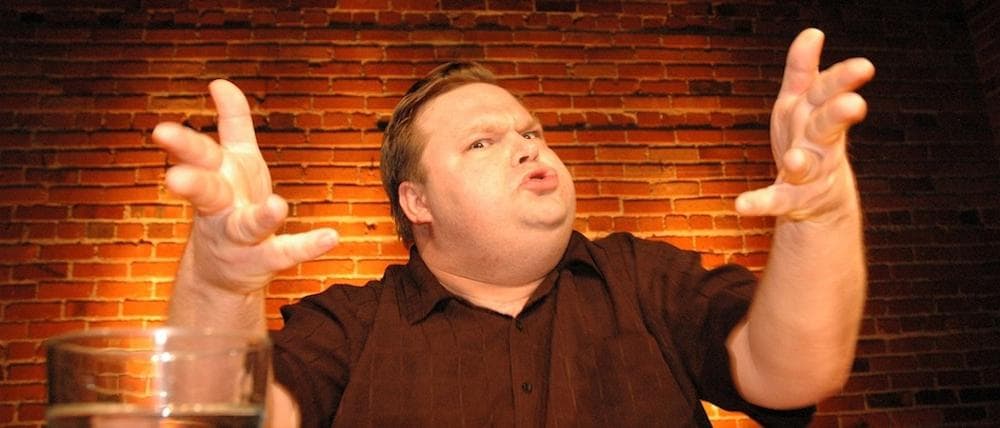Advertisement
REVIEWS
Daisey, Daisey, Give Me Your Answer ... No, On Second Thought, Don't

Mike Daisey turns a page every time he finishes a segment in “American Utopias.” Since he’s talking about three different types of utopias — Burning Man, Disney World and Occupy Wall Street — when he turns over the third page you think, “Well, that was a pretty good monologue. He didn’t tie it together, but it was smart and funny.”
But then he goes on. And on. And on. Turning over a fourth, and a fifth, and a sixth page, desperately trying to tie it together and ultimately making the evening into a forced march. Almost literally. (The opening show of ArtsEmerson’s The Next Thing Festival repeats Saturday, Feb. 16.)
The idea’s a great one. What makes us look for these unusual common spaces that, we hope, will transform our consciousnesses, if not the entire species? A perfect, communal moment, as one of his predecessors, the late Spalding Gray, might have said. (Films by and about Gray are part of the festival.)
Like Gray, he sits behind a wooden desk, but mopping his brow instead of drinking water. The monologuist, now sporting a beard, also has a wry sense of humor and great comic timing. His best moments are when he’s surprising himself – feeling a sense of awe at witnessing the Magic Kingdom or not wanting to visit the Occupy site out of fear of appearing dorky. For the most part, his observations aren’t all that different than a gifted comedian like Jerry Seinfeld’s might be, though there are sharp grace notes. Disney is better than Prague, he says, because Prague is capitalism — a Hooters in the square — whereas Disney is corporatism, where everything fits a corporate sensibility.
That’s the first three pages. But then the agenda-driven Daisey takes over. It’s as if he knows that his artistic, skeptical self has painted a grim portrait of all three utopias so the political, transformative self has to come to the fore. Burning Man neo-hippies and Occupy Wall street lefties — good; Disney and Bloomberg — bad. I’m not arguing with his conclusions, I’m arguing with the tediousness with which he squares the ideological circle. Or tries to.
Daisey, as has been well documented, has had his problems with public radio, namely “This American Life,” over his less than journalistically accurate monologue about Steve Jobs and Apple. I don’t think that has anything to do with my distaste for “American Utopias,” though I have to say the thought entered my mind, “Do I really take what this guy says about the New York mayor and the police department at face value when he doesn’t think there’s a problem with making things up to tell a better story?”
He makes a big thing of the theater crowd coming together to form a community, even though it’s one that can’t effect public change. I often have the same warm feeling. But by the end of “American Utopias,” I wished I was home watching TV.
This program aired on February 16, 2013. The audio for this program is not available.
